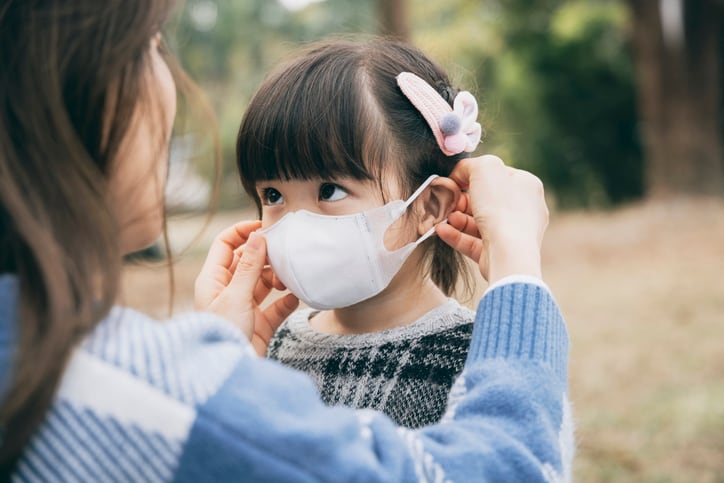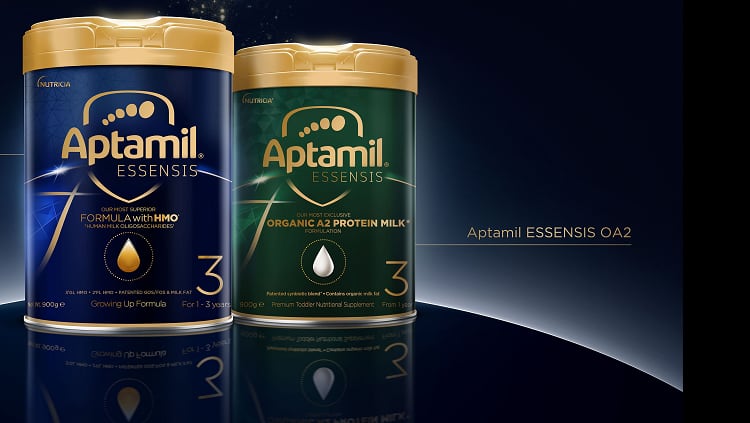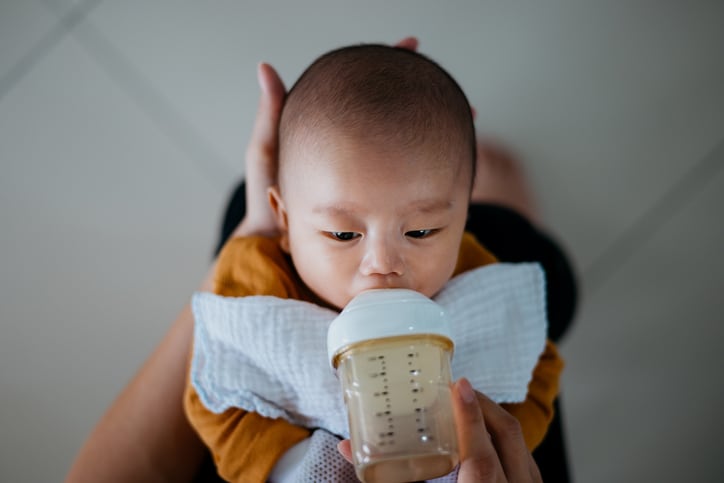The trial also reported that children taking probiotics demonstrated a balanced cytokine response as compared to those taking placebo, as seen from the levels of pro-inflammatory cytokine TNF-α found in their oral swab.
Findings of the study were published in International Journal of Molecular Sciences recently.
The trial was conducted by researchers from Universiti Kebangsaan Malaysia, Universiti Sains Malaysia (USM), Hospital Universiti Sains Malaysia, Inner Mongolia Agricultural University and clinics in Malaysia.
The trial received funding from USM-Beijing Scitop Biotech Co - a China-based probiotic company which also supplied the study materials used in the trial.
A total of 115 toddlers aged six to 12 month old took part in the randomised, double-blind, and placebo-controlled trial.
These toddlers were already suffering from respiratory illness and/or gastrointestinal problems, with symptoms ranging from cough, fever, sore throat, to diarrhoea, vomiting, and abdominal pain when they participated in the trial.
As part of the study, they were randomised to take either the probiotic or placebo daily for four weeks.
The probiotic given was Bifidobacterium longum subsp. infantis B8762 at a CFU of five billion.
Questionnaires were given to assess the effects of the probiotics, including its effects on respiratory health and gut health.
Oral swab samples were also taken to measure the concentrations of pro- and anti-inflammatory cytokines, including TNF-α, IFN-γ, IL-1β, IL-4, and IL-10.
Findings from the questionnaire showed that the probiotic group had a significantly lower duration of respiratory infection symptoms as compared to the placebo group.
The number of days where the toddlers had fever, cough, nose block, wheezing, sore throat, runny nose, body ache, and fatigue per week were significantly shorter in the intervention group by the end of the trial.
For example, the number of days with fever in the intervention group was 1.66 ± 0.26 days per week at baseline but reduced to 0.67 ± 0.19 days per week at the end of the trial.
In the placebo group, the number of days with fever was 3.09 ± 0.39 days per week at the baseline and remained at 3.01 ± 0.40 days per week by the end of the study.
The intervention group also showed reduced visits to clinics for respiratory problems as compared to the placebo group.
In this case, the number of clinic visits for respiratory problem had dropped significantly from 25 at baseline to 12 by the end of the study for the intervention group.
In contrast, the number of clinical visits for the placebo group was 32 at baseline and reduced to 29 - which was not a statistically significant reduction.
Probiotics supplementation has also shown effects for alleviating certain gastrointestinal symptoms - specifically stomach ache, but not for issues such as bloating and diarrhoea.
In the intervention group, the number of days suffering from stomach ache had reduced significantly from 2.05 ± 1.05 days per week at baseline to 0.54 ± 0.18 days per week by week four.
The probiotic strain used in this study, Bifidobacterium longum subsp. infantis B8762, was isolated from the faecal sample of a healthy child in 2017.
Researchers said that the findings aligned with existing findings on probiotics’ disease prevention benefits.
“The decrease in symptom frequency observed after the administration of the B8762 probiotic indicated that it lowered the incidence of these infections, thus significantly reducing the number of clinical visits in children compared to the placebo group for both respiratory and gastrointestinal illnesses.
“These findings align with the prophylactic benefits of probiotics, as they are associated with a reduced likelihood of developing illness symptoms, suggesting that B8762 played a role in reducing the overall burden of disease, thereby lessening the need for medical intervention,” said the researchers.
They explained that probiotics, by lowering gut pH through the production of short-chain fatty acids and other antimicrobial substances, could create an inhospitable environment for pathogens.
Probiotics could also stimulate the host’s immune system and boost the production of immunoglobulins and cytokines that are crucial in pathogen defence.
Tempered cytokine response
Oral swab samples also showed that the placebo group had higher levels of pro-inflammatory cytokine TNF-α, while the probiotic group demonstrated a balanced cytokine response, which the researchers said indicated a modulation of the immune system.
Other pro-inflammatory cytokines, including IFN-γ and IL-10, while higher in concentration in the probiotic group initially, eventually became lower than the placebo group by the end of the trial.
“This stability suggested that B8762 maintained a balanced inflammatory response, preventing the excessive inflammation often seen during respiratory illnesses in children.
“The ability of probiotics to modulate cytokine production and maintain a balanced inflammatory response is crucial in managing respiratory illnesses.
“Excessive inflammation leads to tissue damage and prolonged illnesses, whereas a balanced response promotes faster recovery and reduces the severity of symptoms.
“By preventing the rise in pro-inflammatory cytokines and maintaining stable levels of anti-inflammatory cytokines, probiotics offer a therapeutic advantage in managing paediatric respiratory illnesses,” said the researchers.
Source: Int. J. Mol. Sci.
Therapeutic Potential of Bifidobacterium longum subsp. infantis B8762 on Gut and Respiratory Health in Infant
https://doi.org/10.3390/ijms26031323
Authors: Richmond, R.V.; Mageswary, U.; Ali, A.; Taib, F.; Koo, T.H.; Yusof, A.; Hamid, I.J.A.; Zhao, F.; Rahman, N.N.N.A.; Hasan, T.H.; et al.





